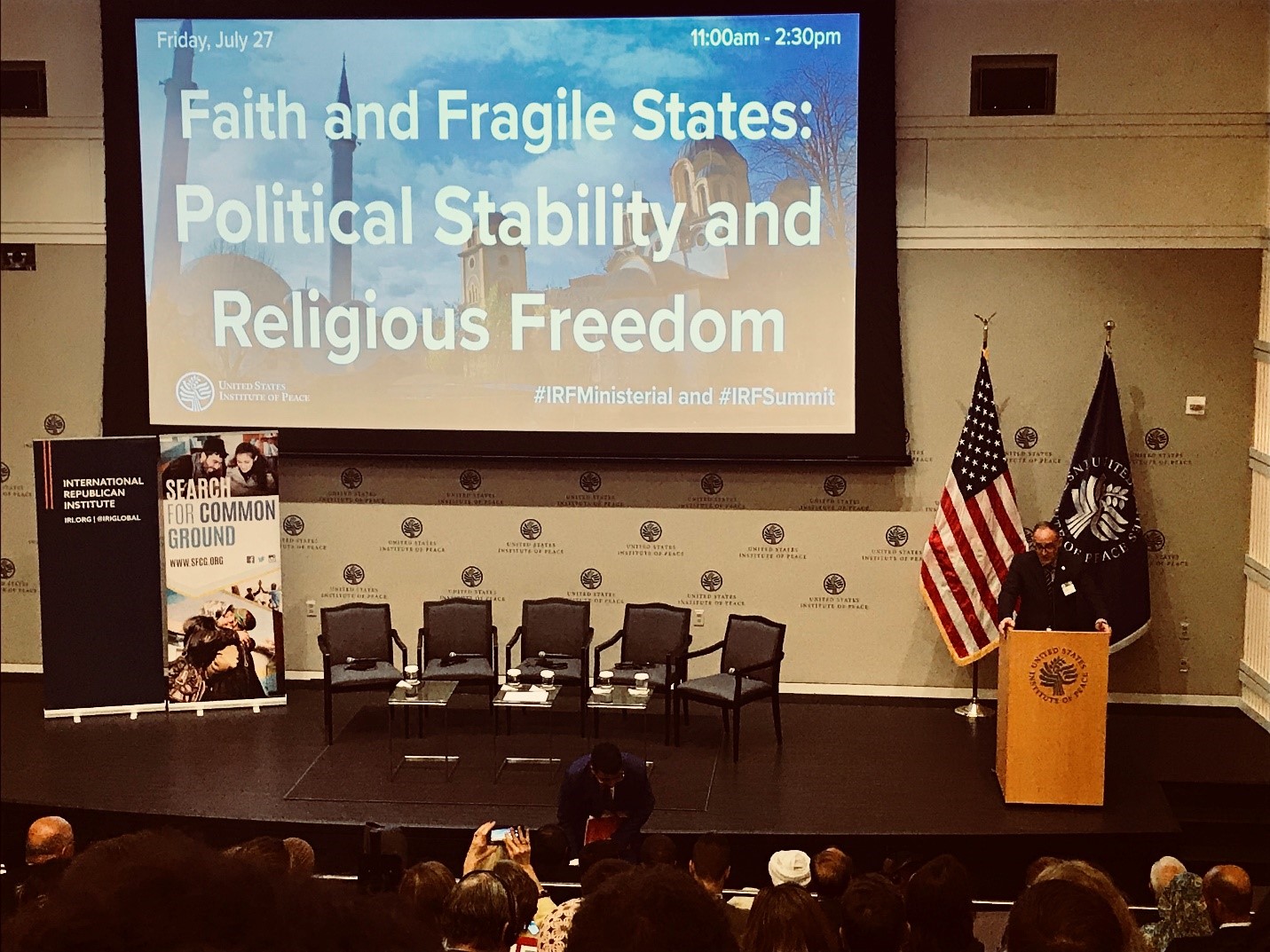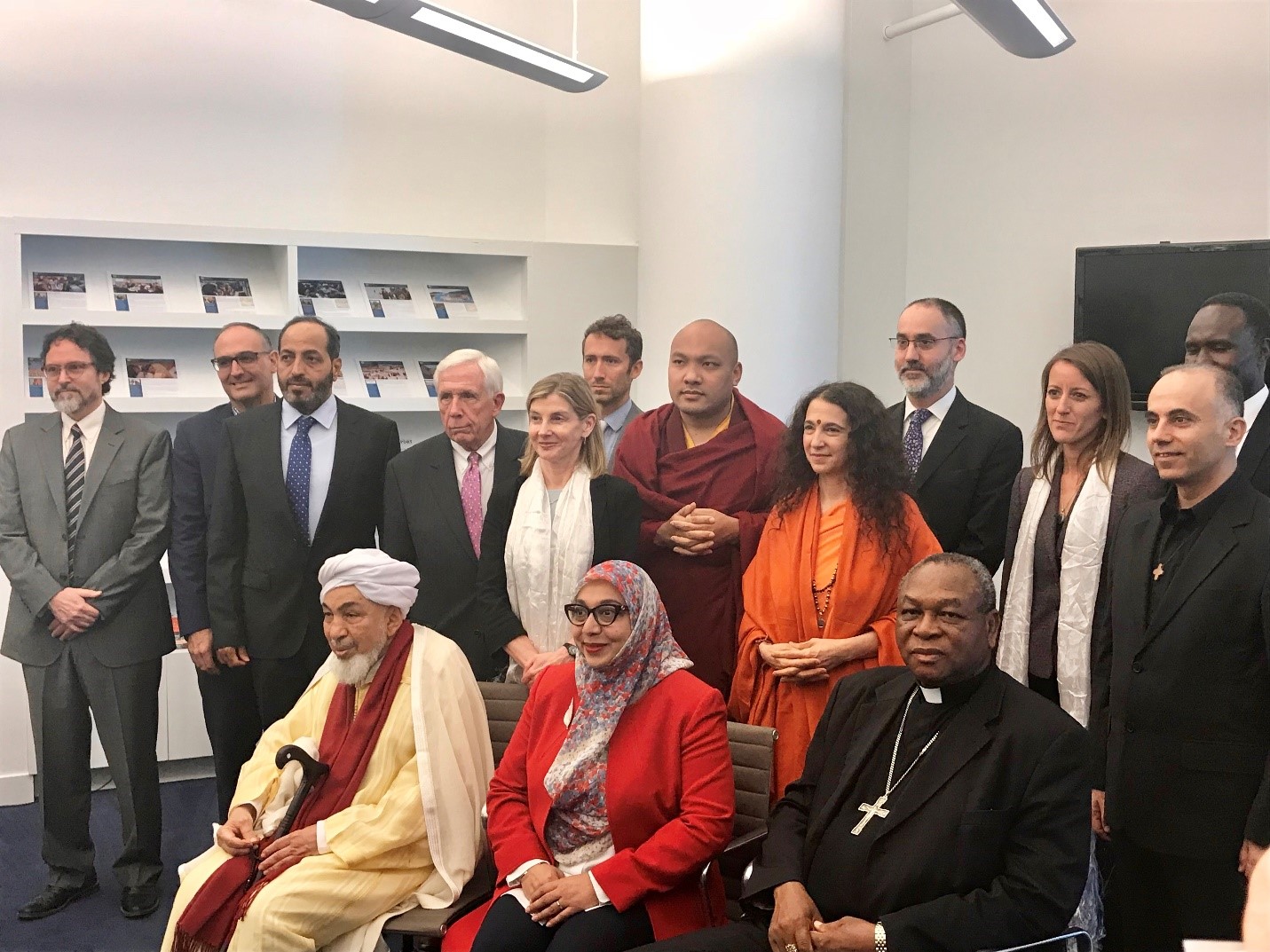
In our increasingly tumultuous world, a wide range of political ideologies, belief systems and religious expressions are being coopted for nefarious and often violent ends. Violent conflict and other destabilizing dynamics often subsume religious groups as the targets or justification for violence.
On July 27, IRI, Search for Common Ground and the United States Institute for Peace (USIP) co-hosted an event coinciding with the State Department’s International Religious Freedom Ministerial. Attended by over 250 practitioners, religious leaders and other experts, discussions focused on the intersections of religious freedom, countering violent extremism (CVE) and interfaith peacebuilding.
Panelists emphasized that the problem of exploiting religion for violent and exclusive objectives is exacerbated as democracies decline. Greater marginalization, government-led oppression and exclusionary policies contribute to increasing the vulnerability of religious groups, particularly those in the minority. Closing democratic space also elevates the recruitment tactics of groups seeking to twist and exploit religious doctrine to justify their acts of violence and increase their appeal to aggrieved populations.
The byproducts and drivers of conflict are myriad and thus require a diverse group of stakeholders. From policymakers and formal government leaders to the religious community, a whole of society approach to understanding and addressing the root causes of conflict is essential.

Because religion is a key driver of conflict and a vehicle for peace, its prominence is essential in all stabilization efforts around the world. IRI is committed to inclusively strengthening democratic institutions to ensure meaningful and sustainable safeguards against violence and exclusion. By equipping nongovernmental actors to peacefully and effectively advocate for change in their communities and reinforcing the importance of inclusive policy development among government officials, IRI leads cutting edge programming to promote peaceful, democratic change in some of the most conflict-prone environments in the world such as East Africa, South Asia and North Africa. From bringing together different faith communities in Tanzania to promote community-level peacebuilding efforts, to featuring religious leaders in discussions about operationalizing IRI’s violent extremism research in Tunisia, the Institute is spearheading a number of initiatives that rely on religious adherents in the struggle for freedom and stability.
The religious community is a critical component of IRI’s work in addressing violent conflict and preventing radicalization around the world. Approaches to CVE, conflict mitigation and stabilization work more broadly should focus on improved local governance to provide political solutions to protracted conflict and shocks to the stabilizing process. This necessitates the inclusion of formal and informal leaders as well as marginalized populations, both of which include religious leaders.
Violent groups often target or exploit religion. In order to protect the free and safe expression of religion around the world, government officials must develop and promote inclusive policies and community leaders must hold their officials accountable to ensure political systems remain unbiased and uncorrupt. Societies must institutionalize open, transparent principles in order for citizens around the world to safely practice their religions. As democracies flourish, so too does the free, peaceful expression of religion.
Top